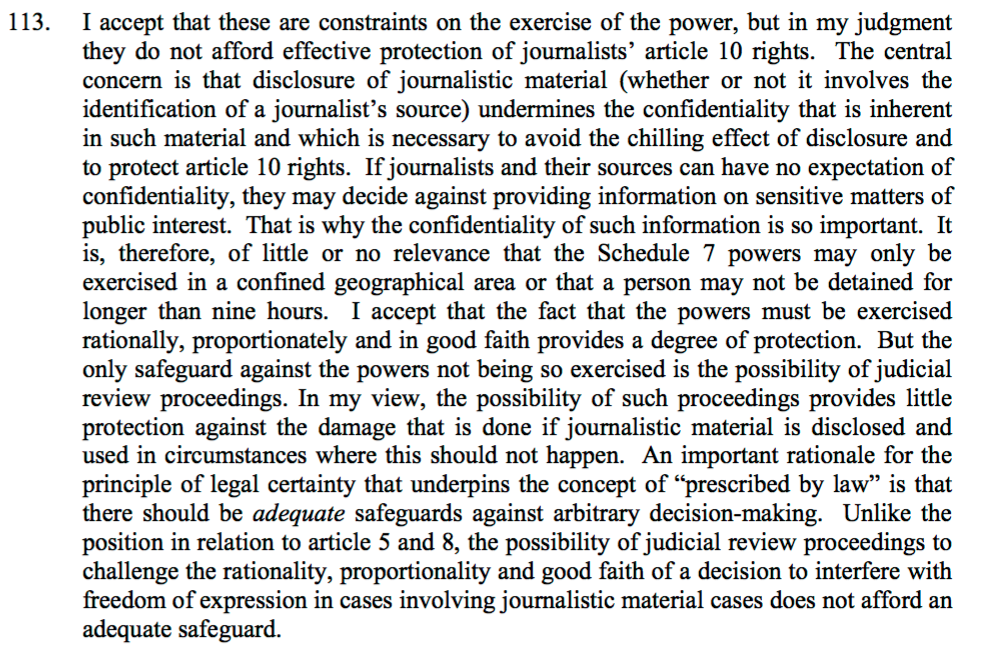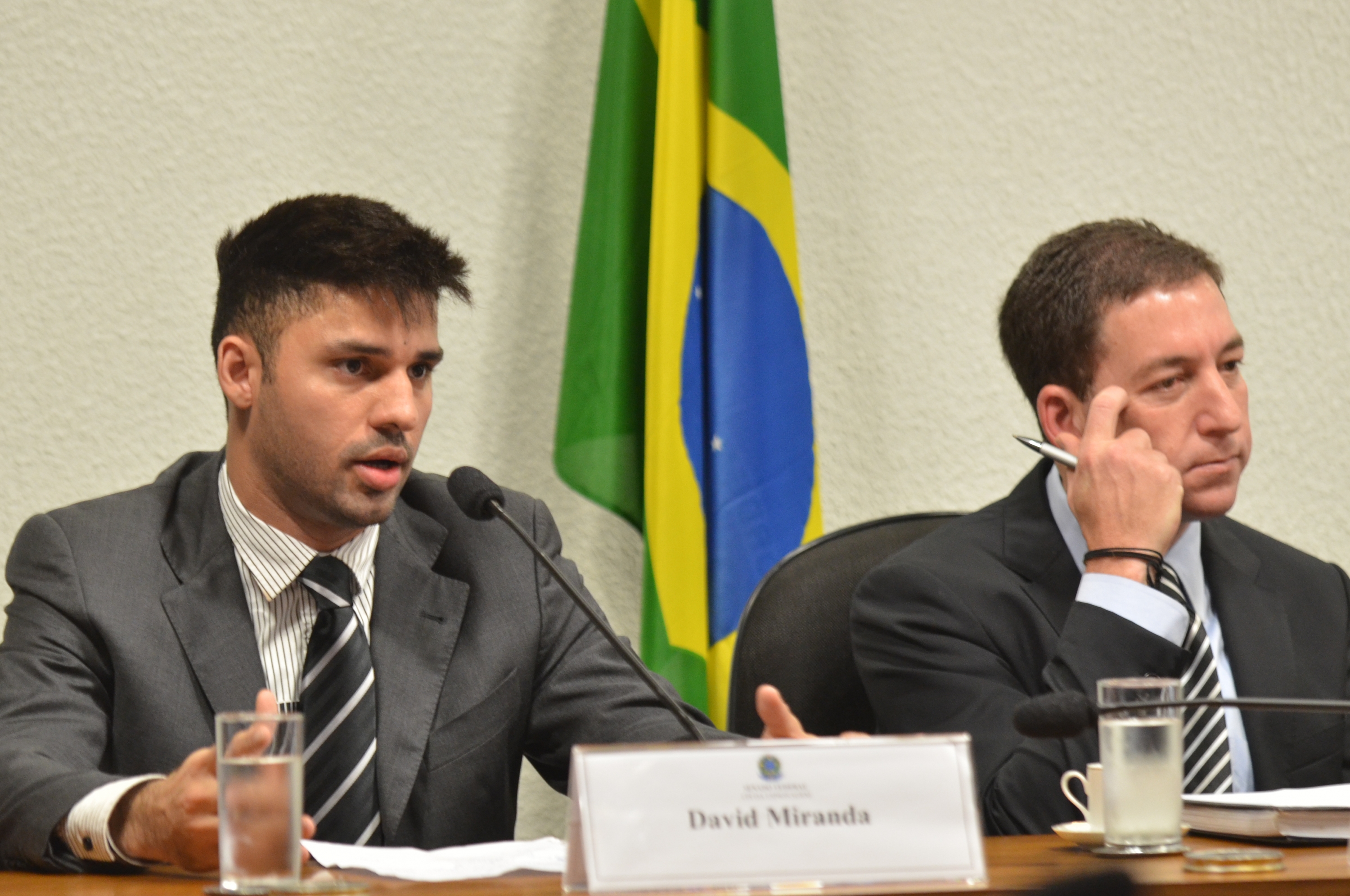The UK Court of Appeal has just ruled in the case of David Miranda -v- Secretary of State for the Home Department.
In short, the detention of Mr Miranda was itself legal but the underlying power, which allows police to stop and search people they suspect of holding journalistic material used for terrorist purposes, is not.
The case relates to the highly controversial detention of David Miranda, the spouse of journalist Glenn Greenwald, in 2013. The police suspected he was carrying data including encrypted material derived from data which had been stolen by Edward Snowden from the National Security Agency of the United States.
The Court ruled that Miranda’s detention was legal, as there was sufficient justification for the exercise of the power.
However, and here is the big news, the court also said that the stop power itself was not compatible with the right to freedom of expression under Article 10 of the European Convention on Human Rights. This was because the law which allows the searches contains “no adequate legal safeguards relating to journalistic material… or to journalistic material the disclosure of which may identify a confidential source” (para 115 of the judgment). Here is the key bit of the reasoning:

The court has made a “declaration of incompatibility”, which means that the law still stands but the matter will be passed back to Parliament to decide what to do about it, if anything. Lord Dyson, giving the judgment, ended with this nudge:
“The most obvious safeguard would be some form of judicial or other independent and impartial scrutiny conducted in such a way as to protect the confidentiality in the material.”
You can read the full judgment here and the Court’s press summary here.







